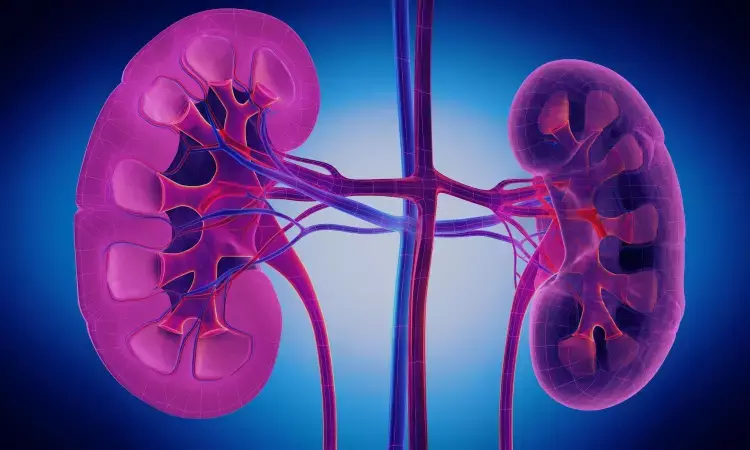- Home
- Medical news & Guidelines
- Anesthesiology
- Cardiology and CTVS
- Critical Care
- Dentistry
- Dermatology
- Diabetes and Endocrinology
- ENT
- Gastroenterology
- Medicine
- Nephrology
- Neurology
- Obstretics-Gynaecology
- Oncology
- Ophthalmology
- Orthopaedics
- Pediatrics-Neonatology
- Psychiatry
- Pulmonology
- Radiology
- Surgery
- Urology
- Laboratory Medicine
- Diet
- Nursing
- Paramedical
- Physiotherapy
- Health news
- Fact Check
- Bone Health Fact Check
- Brain Health Fact Check
- Cancer Related Fact Check
- Child Care Fact Check
- Dental and oral health fact check
- Diabetes and metabolic health fact check
- Diet and Nutrition Fact Check
- Eye and ENT Care Fact Check
- Fitness fact check
- Gut health fact check
- Heart health fact check
- Kidney health fact check
- Medical education fact check
- Men's health fact check
- Respiratory fact check
- Skin and hair care fact check
- Vaccine and Immunization fact check
- Women's health fact check
- AYUSH
- State News
- Andaman and Nicobar Islands
- Andhra Pradesh
- Arunachal Pradesh
- Assam
- Bihar
- Chandigarh
- Chattisgarh
- Dadra and Nagar Haveli
- Daman and Diu
- Delhi
- Goa
- Gujarat
- Haryana
- Himachal Pradesh
- Jammu & Kashmir
- Jharkhand
- Karnataka
- Kerala
- Ladakh
- Lakshadweep
- Madhya Pradesh
- Maharashtra
- Manipur
- Meghalaya
- Mizoram
- Nagaland
- Odisha
- Puducherry
- Punjab
- Rajasthan
- Sikkim
- Tamil Nadu
- Telangana
- Tripura
- Uttar Pradesh
- Uttrakhand
- West Bengal
- Medical Education
- Industry
Elevated hs-CRP Linked to significant Diabetic Nephropathy Risk , suggests study

A new study published in BMC Nephrology has found that elevated levels of high-sensitivity C-reactive protein (hs-CRP) are significantly associated with an increased risk of diabetic nephropathy (DN), a serious microvascular complication of diabetes.
Researchers analyzed data across multiple studies and concluded that hs-CRP—an inflammatory biomarker—may serve as a useful tool for identifying high-risk individuals and informing targeted anti-inflammatory treatment strategies.
The findings point to the role of systemic inflammation in the pathogenesis of diabetic kidney disease, suggesting that hs-CRP could be integrated into risk stratification models alongside traditional markers like albuminuria and estimated glomerular filtration rate (eGFR). Despite these insights, the authors note that considerable heterogeneity among included studies—such as differences in diagnostic criteria, populations, and study design—limits the generalizability of the results. Therefore, while the data is promising, further prospective and mechanistic studies are required to confirm causality and refine clinical application.
This research contributes to growing evidence that chronic low-grade inflammation plays a central role in diabetic complications, and highlights hs-CRP as a potentially accessible, low-cost biomarker for routine monitoring in diabetic patients. Early identification of inflammation-driven kidney damage may help clinicians intervene before irreversible progression to end-stage renal disease.
Dr. Shravani Dali has completed her BDS from Pravara institute of medical sciences, loni. Following which she extensively worked in the healthcare sector for 2+ years. She has been actively involved in writing blogs in field of health and wellness. Currently she is pursuing her Masters of public health-health administration from Tata institute of social sciences. She can be contacted at editorial@medicaldialogues.in.
Dr Kamal Kant Kohli-MBBS, DTCD- a chest specialist with more than 30 years of practice and a flair for writing clinical articles, Dr Kamal Kant Kohli joined Medical Dialogues as a Chief Editor of Medical News. Besides writing articles, as an editor, he proofreads and verifies all the medical content published on Medical Dialogues including those coming from journals, studies,medical conferences,guidelines etc. Email: drkohli@medicaldialogues.in. Contact no. 011-43720751


